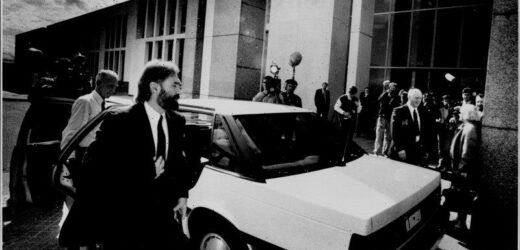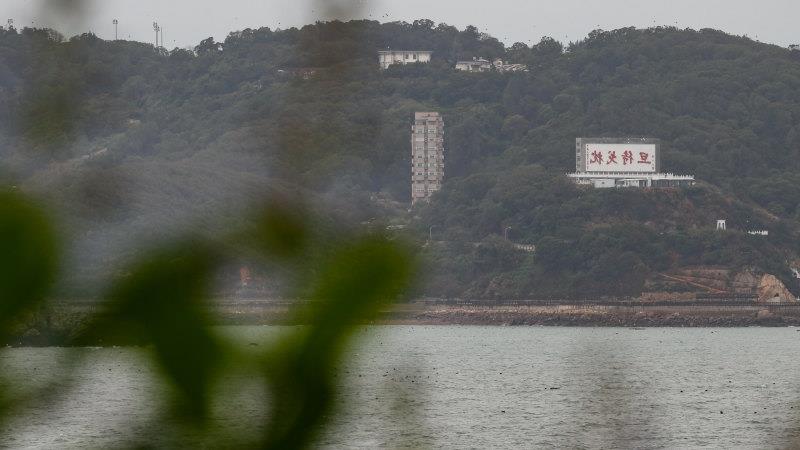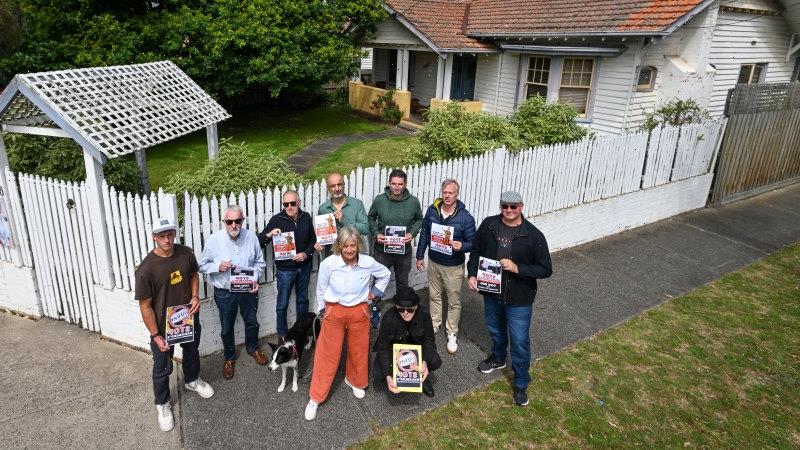First published in The Age on November 26, 1992
Cleary lashes court ‘absurdity’ – Wills poll unlikely
The Federal Government is unlikely to call a byelection for the Melbourne seat of Wills after the High Court ruled yesterday that the seat’s Independent member, Mr Phil Cleary, was ineligible to sit in Parliament.
The Prime Minister, Mr Keating, last night left his options open on a byelection. But the Labor Party’s national secretary, Mr Bob Hogg, who strongly attacked the decision, said that “on the balance of probabilities” there would not be a byelection.
Phil Cleary’s first day at Parliament in April 1992Credit:Greg White
Mr Cleary, who replaced the former Prime Minister, Mr Hawke, at an April byelection, said the court’s decision was an absurdity and “an affront to democracy”. He is legally obliged to pay back all his parliamentary salary and allowances, but the Parliament is expected to waive these.
He also faces the risk of hefty fines if anyone sues in the High Court for the money. But Mr Ian Sykes, an unsuccessful candidate in the byelection, and the man who brought the action, said he would not sue.
The court, in a separate part of the judgment that rocked Parliament and has led to new attacks from within the Labor Party on its current thinking, also left uncertainty over at least four parliamentarians holding dual nationality.
Mr Keating said last night that he sympathised with Mr Cleary. “I think it is a pretty tough result for Mr Cleary to be disqualified on the technicality of being a public servant on leave. I like winning battles, but I like winning them the right way – up front. I don’t think we’re taking any political pleasure in this.” A spokesman for Mr Keating said: “The general course of events when a single seat is declared vacant is that there would be a byelection.” The spokesman said this should not be read as saying there would be a byelection. There is no required time in which one must be held.
The Minister for Administrative Services, Senator Bolkus, said the Government would have to balance the “rights of people to be represented with the costs and inconvenience (of a byelection) so close to an election”.
Phil Cleary sitting in Parliament in CanberraCredit:Greg White
The court also ruled that the Liberal and Labor candidates for the byelection in which Mr Cleary was elected could not have sat in Parliament because they had not adequately renounced their foreign citizenships.
The Government intends to tough out the dual-citizenship issue. Mr Keating said last night, after an emergency meeting with the Attorney-General, Mr Duffy, and senior legal officials, that the judgment affected the next election rather than the past one.
But legal observers said any Australian could immediately challenge affected parliamentarians in the High Court under the Constitution.
The 40-day limit on a challenge under the Electoral Act did not apply to allegations of a constitutional breach.
Mr Hogg bitterly attacked the High Court’s finding on dual citizenship as “bad, unimaginative, and unnecessary”. He said it ignored contemporary Australia and created a “new class of citizen, who can go on the rolls, vote but not stand for Parliament”.
The shadow attorney-general, Mr Costello, called on the Speaker, Mr McLeay, to clarify the status of members of the House of Representatives. He said that if Mr McLeay could not do so, the House should refer the matter to the High Court.
Mr McLeay will make a statement to the House today, but Government sources said neither he nor the Government would move to ask the High Court to rule on any member’s eligibility.
In a six-one judgment, the court ruled that he had contravened section 44 (iv) of the Constitution because he did not resign his “office of profit under the Crown” before the byelection. Mr Cleary was a schoolteacher on unpaid leave from the Victorian Education Department.
First published in The Age on November 26, 1992
Job done, Sykes takes the bus home
Flushed with success, the man who brought about the political downfall of the short-lived independent member for Wills, Mr Phil Cleary, last night clambered aboard a bus in Canberra for an overnight journey back to Melbourne.
Mr Ian Sykes, who polled only 364 primary votes in the April byelection following the retirement of the former Prime Minister, Mr Hawke, had arrived yesterday morning after another bus ride to hear the High Court agree with his case that Mr Cleary had not been eligible to stand as a candidate. His argument had also ruled out both the Liberal and Labor candidates for the seat.
While Mr Cleary spent the afternoon fuming in his office, Mr Sykes, who now lives on the dole and a $20-a-week consultancy after he lost millions of dollars on the stockmarket in the 1980s, felt no remorse.
“Somebody breached the law and I drew it to the attention of the appropriate authorities,” he said. “I don’t think I’ve shot down his career.” At 2pm, Mr Cleary, no longer eligible to sit in the House of Representatives and facing the possibility of having to pay back his salary, sat down in his office to watch question time on television.
It was the first question time he had missed in seven months.
It was, he said, “a bit like winning the Grand Final and then having it taken off you because one of your players was wearing the wrong boots. There are too many emotions to describe.” Four hours earlier, he had sent his adviser, Mr George Butman, to the High Court with explicit instructions: “Just tell me whether I am in, or out.” Mr Butman, who taught Mr Cleary politics at La Trobe University in the 1970s and has worked for him since he was elected member for Wills, did not let his boss down. Soon after 10.15am, he rang Mr Cleary in his Parliament House office with the news: “You’re out.” Mr Cleary said it was not a time for tears or self-pity. “You’re a bit stunned but you have to come to terms with it. I can’t do much about it at the present time.” Instead, he wanted to focus on his achievements and the battle ahead.
He would stand again for Wills and protest against the High Court decision, starting with a rally at the Coburg Football Club tomorrow.
After the High Court ruling, no second byelection was held for the seat of Wills, as a general election was expected within a few months. At the March 1993 election, Phil Cleary stood again and won again.
Most Viewed in Politics
From our partners
Source: Read Full Article




